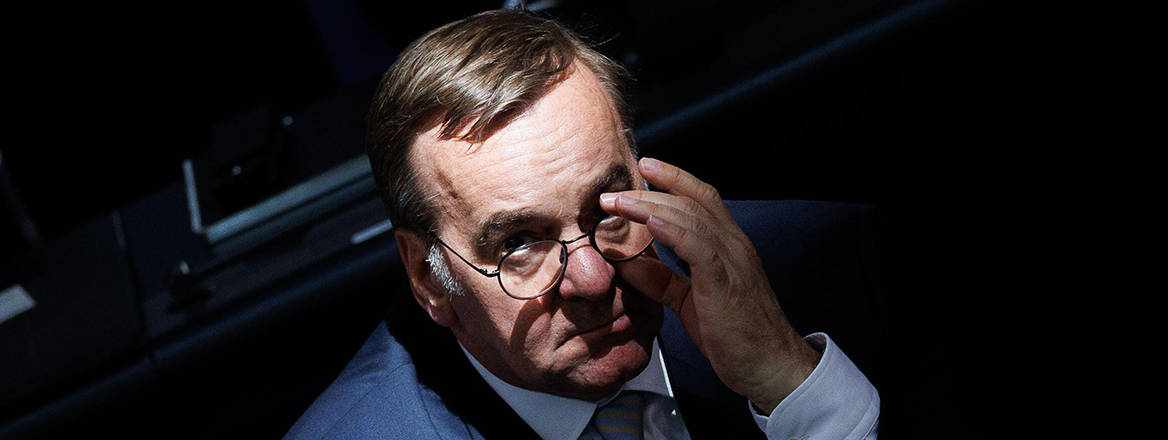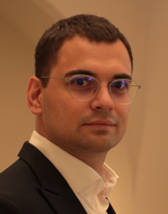The Speer Group ventures into the small world of German defence private equity. RUSI's Jonathan Eyal and Linus Terhorst interviewed its founders.
Europe wants to rearm. Yet, as European governments support Ukraine with material and seek to increase their own stockpiles, they discovered that 30 years of the peace dividend had changed the industrial base’s ability to satisfy these demands. Too often, production capacities were insufficient, supply chains unreliable and technology too dependent on non-European actors. The question arising from this is how to enable industry to fix these issues. One demand is increased spending, which will enable industry to increase capacity. On technology development, European governments all have major programmes that push forward key capabilities. In this area, governments and the European Union have all acknowledged the increasingly important role of enterprises not yet engaged in the defence sector. Many put together funding for innovative start-ups that see a defence application in the technology they develop. Across the continent, innovation hubs flourish, both on the national and international levels.
However, the so-called ‘valley of death’ persists for companies that develop new technology for defence solutions. As state seed-funding runs out or is simply not sufficient, big procurement contracts are still untenable for growing start-ups. In the civil world, this gap is closed by, amongst other forms of investment, venture capital. In venture capital, investors put large sums of money into a broad range of promising young companies. The small amount of companies that do succeed offer generous returns of investment. However, compared with the commercial sector, defence has seen relatively little of this type of investment in the past. The reasons for this are numerous: due to the cost involved in developing large platforms – on which many defence products depend – and the expertise necessary to build them, the defence industrial landscape is shaped by a handful of companies that closely observe the defence start-up scene and invest where they see potential, further consolidating their market position. Meanwhile, the peace dividend did not make defence an appealing, growing market. In any case, this market comes with caveats that may appear unattractive to some investors, as its often monopsonic structure (of only one buyer, the state) may seem difficult to navigate. Lastly, for some time, investing in defence was simply not fashionable, as parts of the public perceived it as unethical and campaigned for exclusions of the defence sector in sustainable branded investment vehicles.
In Germany, we are facing a serious funding gap for growth capital in security and defence, which is partially due to the ESG criteria
Max Buechner, CEO and Founder, Speer Group
Some of these factors have now changed. There is money to be made in defence and governments have an obvious appetite for spending this money on disruptive technologies. Moreover, defence is now perceived more positively as an important factor in keeping Europe safe from hostile Russia. Nowhere is this change more apparent than in Germany, where Olaf Scholz changed the country with his ‘Zeitenwende’ policies, increasing defence spending dramatically. This is also reflected in the increased interest of venture capitalists across Europe in the sector. The German Speer Group fund is an example, branding itself as the first Germany-based defence-focused venture capital fund. Having been launched in May 2025, RUSI’s Jonathan Eyal and Linus Terhorst interviewed the Speer Group’s founder and CEO, Max Buechner and David Colombo, member of the group’s advisory board.
Linus Terhorst (LT): Max, you are starting a fund with a specific defence focus. What made you do it?
Max Buechner (MB): In Germany, we are facing a serious funding gap for growth capital in security and defence, which is partially due to the ESG criteria. With Speer Fund II, we aim to bridge this funding gap by providing seed and growth capital to early-stage ventures in the security and defence space.
David Colombo (DC): With our Fund, we can contribute to Europe’s industrial resilience. Europe thinks about start-ups, finance and the big defence companies too separately. All of that must come together to enable the resilience we need. We need larger defence contractors collaborating with start-ups. We need the public and the armed forces to collaborate with those start-ups. We need cross-collaboration across all those entities. We can identify, with our partners and advisors, the capabilities that we need and how companies fit into all these entities. The Speer Group wants to provide the larger platform advisors and access to help companies maximise their contribution to Europe's resilience.
Jonathan Eyal (JE): How does your fund work? What are you trying to fund and what is your promise to investors?
MB: We invest in innovative, early-stage companies with high growth potential in the field of security and defence in Europe. For these ventures, it is very difficult to obtain smart-money to grow their operations and navigate the market effectively. In the US, it is common to invest in defence start-ups. In Germany, we lack funding and funds that combine financial acumen with deep military expertise and strategic insight: companies can find seed finance and get the idea started relatively easily but it is very difficult to grow to a size that would make them relevant defence industrial providers. At Speer Group, we want to identify those start-ups and offer them smart cash in exchange for equity. With our funding, access to military expertise and strategic insight, ventures can grow their operations effectively.
JE: How big is the fund going to be at the launch?
MB: The target size of the fund are €300 million for security and defence in Europe.
LT: Are you looking for any specific technologies and capabilities to invest in? And what kind of funders are you looking for?
MB: Despite a solid business model, that drives return for our investors, we are looking for companies that invest in the next generation of capabilities and services across NATO’s strategic dimensions, which are sea, air, land, cyber and space. We focus not purely on innovation or any specific technology, but on defence capability. Therefore, it is not necessarily about the most innovative start-up, but about the start-ups that enhances the performance of the European defence ecosystem, and those of our allies. Products and technologies must be interoperable across European forces. As to the funders: we are speaking to semi-professional and professional investors who have an interest in investing in security, defence and resilience across Europe.
LT: So, you won’t have a specific technology focus such as on AI applications?
DC: AI can greatly enhance capabilities, but it still needs hardware. We need to bring those two worlds together. This is the trend that we are seeing: bringing that deep-tech hardware aspect together with intelligent operations. AI plays a role in that but also other digital intelligence components. Together, they unlock so much more capability.
JE: A fund like this requires a lot of expertise to decide which technologies are likely to work. Government and defence procurement teams are meant to be good at this. Are you going to collaborate with governments on this? Or are you going to replicate some of the knowledge that governments have?
MB: Governments have extensive knowledge but do not operate at speed. We can operate at speed. Beyond that, we offer ventures access to a broad as well as deep international network in security and defence, that enables them to navigate the market effectively. What sets us apart from other funds is the deep expertise in private capital markets, military expertise and strategic insights, that enable ventures to build and market the right product with the right capacity across Europe. Therefore, we are in direct contact with stakeholders in government, industry and the end-user to provide solutions in a shorter time frame.
Investors will not obtain any strategic insights in these ventures or their technologies. This makes the fund also accessible to foreign investors
Max Buechner, CEO and Founder, Speer Group
DC: One of the benefits of the fund is that we can do that across not just one country but across Europe. We will have insights in what is needed on the field and form a strategic perspective and will invest in companies that can best satisfy these cross-border needs.
JE: Will governments be happy for you to own parts of these highly innovative companies or would there not be a much greater determination to control this technology?
DC: It's important that Europe understands itself as a single entity in that space. When we look at investors we see a lot of European family offices, for example, that want to ensure European resilience. The defence companies that we invest in are predominantly European to make sure that those capabilities are built and then stay here in Europe.
MB: We see ourselves as enablers, not as the owners of products and technologies. Investors from Germany for example, that invest in a French start-up may benefit economically and, ideally, from the security that this venture provides to the geopolitical stability in Europe, yet investors will not obtain any strategic insights in these ventures or their technologies. This makes the fund also accessible to foreign investors.
JE: Do you think that you are providing financial resources unavailable from other sources? Or are you just competing with government funding and other investors?
DC: Europe has had much success in very late-stage companies investing and in getting ideas off the ground. But there are very few options for companies in-between these steps. They are too small for the big traditional investors but need the resources to not just envision the technology but to bring it into the field.
MB: We fill the critical gap between institutional or governmental investors with billion-euro funds and low-impact angel investors. We are at the sweet spot for tickets between, EUR 2 and 10 million where we currently do not see an institutionalised solution for the effective allocation of capital that also provides military expertise and strategic insights.
There is a lot more acceptance in the whole of European society around investing into defence. That is one of the reasons why we now see a lot more investment from governments
David Colombo, Advisory Board Member, Speer Group
JE: Do you see that gap as the same across Europe or are there differences across markets? Is it easier to find Venture Capital in London than in Germany?
MB: Generally, the UK is more liberal when it comes to investing in defence related companies. In the EU, it's more difficult to obtain growth capital for early-stage ventures in security and defence. This is one of the reasons why there is a trend of European defence companies to move to the UK or the US. With Speer Group, we aim to ease the effective allocation of Capital to European ventures to retain them in Europe.
LT: Why do you think there is this gap in Europe about funding?
MB: As Europeans, we have benefitted from the peace dividend and US protectorate over the past 30 years. As times are changing and Europe becomes more self-reliant, we have to revisit and reconsider what we label as unsustainable or even unethical in a geopolitical environment that aims to influence and change western power structures and therewith the influence of the EU, UK and the US in the world-order. People now ask how we deploy capital and manage risk to retain the status quo. This opens new markets, that we approach with the highest standards of moral integrity.
DC: There is a lot more acceptance in the whole of European society around investing into defence. That is one of the reasons why we now see a lot more investment from governments. But it was also crucial to have seen some successes from defence start-ups in Europe and the US. They proved that young companies could develop and deploy new technology. We see our role in providing a platform for those start-ups to become big players and contribute on a meaningful scale. As we encounter new threats, European now accept defence as an important sector in responding to this.
© RUSI, 2025.
The views expressed in this Commentary are the author's, and do not represent those of RUSI or any other institution.
For terms of use, see Website Terms and Conditions of Use.
Have an idea for a Commentary you'd like to write for us? Send a short pitch to commentaries@rusi.org and we'll get back to you if it fits into our research interests. View full guidelines for contributors.
WRITTEN BY
Dr Linus Terhorst
Research Analyst
Military Sciences
- Jim McLeanMedia Relations Manager+44 (0)7917 373 069JimMc@rusi.org




